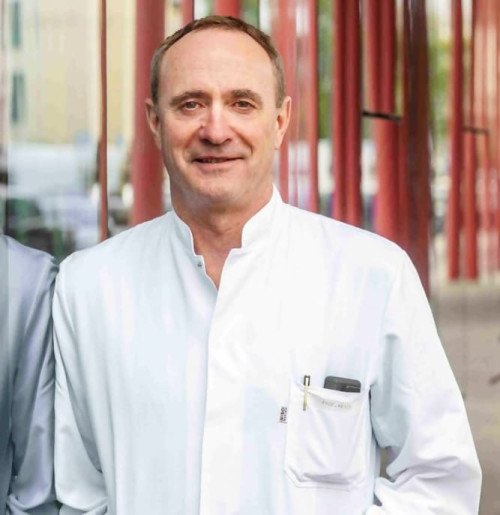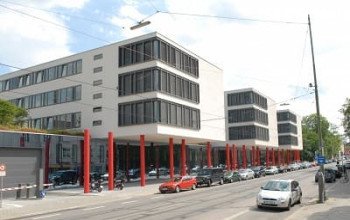
Rating : 10/10 (⭐⭐⭐⭐⭐)
🔹Dr. Bernhard Meyer, based in Munich, Germany, is a highly respected neurosurgeon with nearly three decades of experience. He has a rich educational background, having studied medicine in Padua, Italy, Erlangen-Nürnberg, and at Northwestern University in Chicago. On top of that, he earned a Ph.D. from the Institute for Human Genetics at the University of Erlangen-Nürnberg. Over the years, Dr. Meyer has held several prestigious positions, including Professor of Neurosurgery at the University Clinic in Bonn. Today, he serves as the Chair of Neurosurgery at the University Hospital Rechts der Isar in Munich.
🔹Dr. Meyer’s expertise covers a wide range of complex surgeries, including brain surgery (craniotomy), spinal surgery, peripheral nerve surgery, endovascular neurosurgery, trauma surgery, and cranioplasty (Skull Surgery). In addition to his surgical skills, Dr. Meyer is a leader in the field of neurosurgery and neuro-oncology, focusing on spine and vascular surgery. His research has explored diverse areas, such as the use of alternative medicine in cancer care, the optimal timing of surgery after COVID-19 infection, and the study of plasma levels in traumatic brain injuries. His work has been widely published, contributing significantly to the medical community.
🔹In recognition of his leadership, Dr. Meyer has held key roles, such as Chairperson of the Spine Section of the European Association of Neurosurgical Societies and President of the German Society for Spine Surgery in 2019. His dedication to advancing neurosurgical techniques and improving patient outcomes has made him a trusted and well-regarded expert, both among peers and patients seeking specialized care.
As one of the best neurosurgeons in Germany, Dr. Meyer is recognized for his excellence in both research and clinical practice. He is a leading expert in various complex neurosurgical procedures, providing treatment in Germany at one of the most advanced medical institutions.
Brain Surgery (Craniotomy):
Tumor removal (brain tumors like gliomas, meningiomas)
Aneurysm repair
Traumatic brain injury (removal of hematomas, skull fractures)
Epilepsy surgery (removal of seizure-causing tissue)
Hydrocephalus treatment (shunt placement or endoscopic third ventriculostomy)
Spinal Surgery:
Herniated disc removal (discectomy, laminectomy)
Spinal fusion (to stabilize vertebrae)
Spinal cord tumors (tumor removal from the spinal column)
Scoliosis surgery (correcting spine curvature)
Spinal stenosis (relieving nerve compression)
Peripheral Nerve Surgery:
Carpal tunnel release (for carpal tunnel syndrome)
Peripheral nerve tumor removal
Nerve repair (for nerve injuries)
Endovascular Neurosurgery:
Aneurysm coiling or stenting
Embolization of arteriovenous malformations (AVMs)
Functional Neurosurgery:
Deep brain stimulation (DBS) (for Parkinson’s disease, essential tremor)
Spinal cord stimulators (for chronic pain)
Vagal nerve stimulation (for epilepsy, depression)
Pediatric Neurosurgery:
Congenital malformations (spina bifida, Chiari malformation)
Pediatric brain and spinal tumors
Craniosynostosis surgery (correcting skull deformities in infants)
Trauma Surgery:
Emergency brain surgery (for severe head injuries)
Spinal fracture stabilization


.webp)
 (1).webp)

.webp)
 (1).webp)


.webp)
 (1).webp)

.webp)
 (1).webp)
